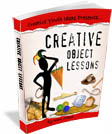 In Chuck Coleson’s book, The Body, he told the story of a priest named Maximilian Kolbe, who died in the place of another prisoner at Auschwitz.
In Chuck Coleson’s book, The Body, he told the story of a priest named Maximilian Kolbe, who died in the place of another prisoner at Auschwitz.
The story begins in 1939, the year Germany invaded Poland. Father Kolbe was then presiding over a Franciscan order he’d founded near Warsaw. A hard-working priest, Father Kolbe expressed a love, enthusiasm, and sense of humor that endeared him to his brethren.
But in February of 1941, the Nazis arrested Kolbe and charged him with publishing unapproved literature. They sent him to Auschwitz, and the 47-year-old monk nearly died from the back-breaking work.
Despite the brutal conditions, Father Kolbe ministered to his fellow prisoners. He prayed with them, heard their confessions, and comforted their souls.
But that ministry ended one hot July morning. An inmate had escaped, and the angry soldiers lined the prisoners up. “The fugitive has not been found!” the commandant screamed. “Ten of you will die for him in the starvation bunker.” The prisoners trembled in terror. A few days in this bunker without food and water, and a man’s intestines dried up and his brain turned to fire.
Commandant Fritsch walked among the rows of prisoners, stopping before certain men, making them open their mouths and stick out their tongues. He was choosing them like one would choose a horse. His assistant, Palitsch, followed behind. As Fritsch chose a man, Palitsch noted the number and stamped a mark on the prisoner’s filthy shirt. Soon there were ten men — ten numbers listed neatly on the death roll. The chosen groaned, sweating with fear. One of them-a Polish farmer named Franciszek Gajowniczek- couldn’t help a cry of anguish. “My poor wife!” he sobbed. “My poor children! What will they do?”
The ten were forced to remove their wooden shoes, a Nazi tradition for those who were about to be executed.
Suddenly there was a commotion in the ranks. A prisoner had broken out of line and was calling for the Commandant. This was suicidal! A prisoner was never permitted to leave the ranks, let alone address a Nazi officer. It was cause for execution. Fritsch had his hand on his revolver, as did the officers behind him. But he broke precedent. Instead of shooting the prisoner, he shouted at him. “Halt! What does this Polish pig want of me?”
The prisoners gasped. It was their beloved Maximilian Kolbe, the one who shared his last crust of bread, who comforted the dying, who gave up his own blanket and encouraged them with prayer. Not Maximilian! The frail man spoke softly, even calmly, to the Nazi butcher, “I would like to die in place of one of the men you condemned.” Fritsch stared at the prisoner. #16670.
“Why?” snapped the Commandant. Kolbe sensed the need for flawless diplomacy. The Nazi never reversed an order; so he must not appear to be asking him to do so. He knew the Nazi dictum of destruction: the weak and the elderly first. He would play on this well-ingrained principle. “I am an old man, sir, and good for nothing. My life will serve no purpose.” His ploy triggered the response Kolbe wanted. “In whose place do you want to die?” asked Fritsch. “For that one,” Kolbe responded, pointing to the weeping prisoner who had bemoaned his wife and children.
Fritsch glanced at the weeping prisoner. He did look stronger than this used up #16670 before him. The Commandant nodded to his assistant and the change was noted. Kolbe bent down and removed his wooden clogs, then joined the group of condemned prisoners. As he did, #5659 passed by him at a distance, led by the soldiers. On the man’s face was an expression of astonishment, an expression that did not yet reveal gratitude. But Kolbe wasn’t looking for gratitude. If he was to lay down his life for another, the fulfillment had to be in the act of obedience itself. The joy must be found in submitting his small will to the will of One more grand.
The ten condemned men were stripped naked and left in a dark cell with no windows, food, or water. As the hours and days passed, the camp became aware of something extraordinary happening in the death chamber. Past condemned prisoners had spent their dying days attacking one another, crying out in pain and exasperation, clawing the walls in a frenzy of despair. But now, coming from the death cell, those outside heard the faint sounds of singing. Things were different this time. The condemned prisoners had a shepherd to gently lead them through the shadow of the valley of death, pointing them to the Great Shepherd. Perhaps it was for this reason that Kolbe was the last to die.
On August 14, 1941, four prisoners were still alive in the bunker, and it was needed for new occupants. A German doctor named Boch walked down the stairs of the death cell with four syringes in his hand. When he swung open the bunker door, there, in the light of his flashlight, he saw Maximilian Kolbe, a living skeleton propped against one wall. His head was inclined a bit to the left. He had the remnants of a smile on his lips. The doctor quickly snuffed out the lives of the other three unconscious prisoners, then turned to insert the syringe into the arm of the last one. In one moment, Maximilian Kolbe was dead.
So it was as a Catholic priest that St. Maximilian accompanied his wretched flock of nine men condemned to death. It was not a question of saving the life of the tenth man – that was part of the story, but there was much more. He also wanted to help those nine to die with dignity. From the moment the dreadful door clanged shut on the condemned men, he took charge of them, and not just them but others who were dying of hunger in cells nearby, and whose demented cries caused anyone who approached to shudder. It is a fact that from the moment he came into their midst, those wretched people felt a protective presence, and suddenly their cells, in which they awaited their final end, resounded with hymns and prayers. The SS themselves were astounded: “So was haben wir nie gesehen” – We never saw anything like it before, they said.
And what of Franciszek Gajowniczek? He died in Poland in 1995 – 53 years after Kolbe had saved him.
But he was never to forget the ragged monk. After his release from Auschwitz, Gajowniczek spent the next five decades paying homage to Father Kolbe.
A few years ago, the 94-year-old Pole visited St. Maximilian Kolbe Catholic Church of Houston. His translator on that trip, Chaplain Thaddeus Horbowy, said: “He told me that as long as he… has breath in his lungs, he would consider it his duty to tell people about the heroic act of love by Maximilian Kolbe.”
Take It to the Next Level
Make it Spiritual
I think the greatest tragedy is that while Franciszek Gajowniczek spent his whole life honoring the man who died on his behalf, we ignore the One who made an even greater sacrifice for us and saved our lives for now and eternity.
There are many things I take for granted in my life – clean running water, electricity, fresh air, and I happen to live in a country with fantastic food that’s always conveniently available any time of the day or night.
Ironically, the things we most likely take for granted the most are the things we should be most thankful for – simply because they’re always there. Continuously. Without fail.
It’s often the same in our spiritual lives. The most basic, foundational things we’ve experienced are the things we take for granted the most. Things like God’s grace, His blessings, His provision. You know how it is, life gets in the way. Urgent things take priority and somehow, God gets pushed out of the picture. We don’t even seem to thank Him or talk about Him te way we used to. We lose the joy of our salvation.
It’s only when something happens, like a power outage or a busted water pipeline do we realize exactly how important these things are in our lives; how essential they are for our existence.
Here’s the thing, why do we wait for something to happen before we realize how important God needs to be in our lives? Why not save ourselves the pain of discovering how far we’ve gone before we come back? Surely we don’t want to be like one of the people Jesus referred to when he told the parable of the sower:
“The seed falling among the thorns refers to someone who hears the word, but the worries of this life and the deceitfulness of wealth choke the word, making it unfruitful.”
– Matthew 13:22 (NIV)
If we ever want to be effective followers of Christ, we need to keep our focus on God. Rather than starting the day running through all the things we need to do and ending it exhausted but satisfied we finished everything, we need to start the day focused on God. Starting with gratitude for the life He gave us to enjoy. The privilege of serving Him through our work, the testimony of his grace that we have, through our studies, our worship, our music, whatever.
We’ll all find we end up with a different outlook. A satisfaction that comes not from a job or a test well done, but from a pleasure that we served our Creator well.
“We must pay the most careful attention, therefore, to what we have heard, so that we do not drift away. For since the message spoken through angels was binding, and every violation and disobedience received its just punishment, how shall we escape if we ignore so great a salvation? This salvation, which was first announced by the Lord, was confirmed to us by those who heard him.”
– Hebrews 2:1-3 (NIV)
Franciszek Gajowniczek spent his whole life honoring the man who died on his behalf. How much more should we honor a God who made the ultimate sacrifice on our behalf. The One who took our place and received the punishment we rightfully deserved.
Make it Practical
- Why is it sometimes hard to pay attention to something?
- What are some of the reasons that youth and adults tend to forget about what Christ has done for them?
- What does it mean to drift away?
- What are some ways that we drift away from God like the Hebrews?
- What attitudes or actions might indicate that a person was drifting away from God?
- What advice would you give someone who is drifting away from God?
- In what ways can we pay greater attention and give God greater significance in our lives for what he has done for us?
- What is the solution for someone who has drifted away?
Make it Personal
- When have you drifted away? Why did you drift away? How did you get back to where you belonged?
- What are some ways that your life has drifted away today, or fails to give God the place he deserves? How can you get it back to where it needs to be?
- What habits or practices can you put in place today that will help keep you from drifting away from God?
- What are some ways you can keep or return your focus on God this week?
Scripture References
Matthew 13:22 (NIV)
“The seed falling among the thorns refers to someone who hears the word, but the worries of this life and the deceitfulness of wealth choke the word, making it unfruitful.”
Hebrews 2:1-3 (NIV)
“We must pay the most careful attention, therefore, to what we have heard, so that we do not drift away. For since the message spoken through angels was binding, and every violation and disobedience received its just punishment, how shall we escape if we ignore so great a salvation? This salvation, which was first announced by the Lord, was confirmed to us by those who heard him.”


Get Help on Your Youth Sermons
Creative Sermon Ideas
This 100 Page e-Book Includes All The Help You Need To Prepare Powerful, Life-Changing Youth Sermons That Will Turn Your Preaching Around And Make Your Youth Sit Up And Listen! Includes 7 Complete Sermons.
–> I want More Youth Sermon Ideas…



 In Chuck Coleson’s book, The Body, he told the story of a priest named Maximilian Kolbe, who died in the place of another prisoner at Auschwitz.
In Chuck Coleson’s book, The Body, he told the story of a priest named Maximilian Kolbe, who died in the place of another prisoner at Auschwitz.



